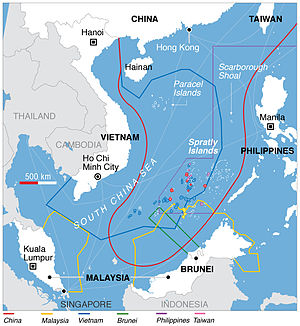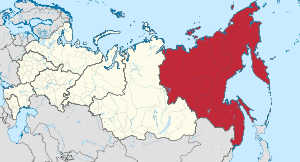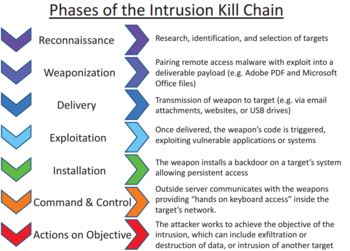by Robert Whitcomb | Jul 15, 2016 | News

The skyline of booming Shanghai.
China has reported a higher-than-expected annualized growth rate of 6.7 percent, the same rate as in the first quarter. As with most dictatorships, it’s difficult to know how accurate that number us. However, in any case, most analysts saw the number as suggesting that the government of President Xi Jinping, in part to keep political control tight, is avoiding economic restructuring.
The Wall Street Journal reported: “Economists say a slower growth rate in the second quarter over the first quarter’s 6.7 percent pace would have sent a welcome signal that China was tackling excess industrial production, rising corporate debt and state-owned enterprise reform.”
“Instead, by ramping up government spending and opening the credit taps, Beijing is likely to fuel overcapacity and see private companies crowded out by risk-averse state banks and bloated state companies.”
“It’s a pretty clear picture with the big, overcapacity state-owned enterprises getting credit and reform plans not getting support,” IG Markets Ltd. analyst Angus Nicholson told the WSJ. “The government talks a good story about helping the private sector, pushing through supply-side reform and lowering investment to state companies, but you’re not actually seeing any of this in the statistics.”
For the full Wall Street Journal story, please hit this link.
by Robert Whitcomb | Jul 14, 2016 | News

Claims in the South China Sea. Note that China claims everything within the red line.
The ruling last week by an international tribunal in the Hague against China’s claims over most of the South China Sea has raised uncertainty and tension amongst those in shipping and international trade.
The very clear July 12 ruling could lead smaller Asian countries to be more assertive regarding their rights in these waters, which, in turn, could increase the number of incidents with an increasingly expansionist and aggressive China, which its neighbors consider a bully.
A big question is how much this will affect freedom of navigation in a sea through which goes 30 percent of world trade. The United States, for its part, has emphasized that it will do what is necessary to keep the shipping lanes open in the region.
To read a Wall Street Journal story on this, please hit this link.
by Robert Whitcomb | Jul 14, 2016 | News
A U.S. federal appeals court has ruled that Microsoft Corp. won’t be forced to turn over e-mails stored in Ireland to the U.S. government for a drug investigation. Bloomberg reports that the decision might affect data security throughout the U.S. technology industry.
The ruling overturned a 2014 decision ordering Microsoft to hand over messages of a suspected drug trafficker. Bloomberg reported that the company had argued that would create a “’global free-for-all,’ with foreign countries forcing companies to turn over evidence stored in the U.S. ”
The government, for its part, said a ruling in favor of Microsoft would create loophole for fraudsters, hackers and drug traffickers.
The law doesn’t “authorize courts to issue and enforce against U.S.-based service providers warrants for the seizure of customer e-mail content that is stored exclusively on foreign servers,” U.S. federal Appeals Court Judge Susan Carney wrote for the majority of the appeals court serving New York.
To read the Bloomberg article, please hit this link.
by Robert Whitcomb | Jul 14, 2016 | News
Lucian Kim writes in a Reuters opinion piece that the Russian athletes’ “doping scandal is a symptom of a much larger problem: the casual disregard for the truth that has become a hallmark of {Russian President Vladimir} Putin’s rule. In a country where elections are rigged, lawsuits are fabricated, and state TV spews lies around the clock, it’s hard to know what ordinary citizens are to believe anymore. Beyond politics, corruption has not only gnawed away at Russia’s reputation as a sports powerhouse, but cheapened the prestige of its once-vaunted institutions of higher education.
“Putin’s initial denial of Russia’s 2014 military intervention in Crimea — followed by a later admission of it — was the clearest demonstration of the Kremlin’s belief that the ends justify the means. Many Russians seem to agree.
“In a poll taken by the independent Levada Center in April 2015, 37 percent of respondents said they believed their government that Russia wasn’t militarily involved in eastern Ukraine. An almost equal portion, 38 percent, said that ‘even if there are Russian soldiers and military equipment in Ukraine, it’s the correct policy for Russia to deny these facts in the current global situation.’ ”
To read Mr. Kim’s essay, please hit this link.
by Robert Whitcomb | Jul 14, 2016 | News

The Russian Far East is in red.
Many Russians fear that their nation’s Far East could end up being absorbed by China, with its 1.4 billion people and huge economy.
So the Russian government, following the directive of strongman President Vladimir Putin, is offering to give land to lure Russian settlers to the vast region. The nine Far Eastern regions covered by the program take up more than a third of Russia’s area but are home to only 6.1 million people, compared with the 110 million Chinese living across the border in Manchuria.
Mr. Putin said in 2013 that the development of Siberia and the Far East must be “our national priority for the entire 21st Century.”
To read a New York Times piece on this, please hit this link.
by Robert Whitcomb | Jul 14, 2016 | News
Su Bin, a Chinese businessman who admitted being part of a group hacking U.S. defense secrets, has been given nearly four years’ jail. He had been extradited from Canada.
Su Bin was convicted of taking part in a multi-year plot by Chinese military officers to obtain sensitive U.S. military information, including projects including the F-22 and F-35 fighter jets and Boeing’s C-17 military transport aircraft.
“Su assisted the Chinese military hackers in their efforts to illegally access and steal designs for cutting-edge military aircraft that are indispensable to our national defense,” said John Carlin, assistant attorney general for national security.
The Chinese government has repeatedly denied any involvement in hacking.
But, The Guardian noted, his spying has been been openly lauded in China.
“We are willing to show our gratitude and respect for his service to our country,” said a March editorial in the Global Times, a nationalistic newspaper with close ties to the China’s Communist Party dictatorship.
“On the secret battlefield without gunpowder, China needs special agents to gather secrets from the U.S.”
Prosecutors said Su, who ran a China-based aviation and aerospace company from Canada, traveled to the United States at least 10 times between 2008 and 2014 and worked with two unidentified China-based co-conspirators to steal the data.
Su admitted taking part in the crime for financial gain.
To read The Guardian story, please hit this link.
by Robert Whitcomb | Jul 12, 2016 | Initiative
Paul Barrett writes in Bloomberg:
“A lawsuit filed against Facebook Inc. on behalf of terrorism victims in Israel illustrates some of the complications of going to court to remedy violent radicalism.”
“Lawyers for the victims sued Facebook in Manhattan federal court on Monday, seeking $1 billion in damages. They alleged that the U.S. company allowed Palestinian militants affiliated with Hamas, branded by the U.S. government as a terrorist organization, to use the online service to plan attacks that killed four Americans and wounded another in Israel, the West Bank, and Jerusalem. The suit alleged that Hamas has used Facebook to share operational information and instructions for carrying out attacks.”
“{I}t’s fair to say that the suit against Facebook faces some serious legal hurdles. First, there is the so-called safe harbor provision of the (U.S.} Communications Decency Act. That measure protects online service providers, such as Facebook, from legal liability related to what their users say. The suit against Facebook argues that the 1992 Anti-Terrorism Act, which prohibits material support to terrorist groups, ought to trump the communications decency law.”
But, Mr. Barrett argues, “In light of … potential legal obstructions, the application of effective blocking technology might work better than litigation. Gabriel Weimann, an expert on terrorism on the Internet at Haifa University told Bloomberg that the focus should be on developing faster ways to detect problematic messages so they can be blocked immediately, before they go viral, Weimann said. ‘Facebook isn’t the only platform,’ he added. ‘There are plenty of others. What will you do? Sue them all?”’
Mr. Barrett went on:
“Facebook clearly knows how to do what Weimann recommends. In March, the company took down a page advocating a new Palestinian uprising against Israel because it made ‘direct calls for violence.’ Better algorithms applied more aggressively could accomplish far more than long-shot, billion-dollar lawsuits. Indeed, Facebook would be wise to explore a settlement of this case built on a foundation of improved blocking technology aimed at violent fanaticism of all sorts.”
To read Mr, Barrett’s article, please hit this link.
by Robert Whitcomb | Jul 12, 2016 | News

Google senior vice president Diane Greene said on July 11 that the company was notifying customers of about 4,000 state-sponsored cyberattacks per month.
The Internet search leader has led the sector in notifying users of government spying. Others, including Microsoft Corp (MSFT.O), have followed suit.
China and Russia are considered the leading cyberattackers.
To read a Reuters story on this, please hit this link.
by Robert Whitcomb | Jul 12, 2016 | News
The apparent shooting down of a new Russian state-of-the-art Mi-35M helicopter, which could only be operated by the Russian military, over a Syrian area controlled by the Islamic State suggests how much the Russians are directly involved in the Syrian civil war to support dictator Bashar Assad.
The Washington Post noted that the case of the downed aircraft again raises the question of how much Russian forces, including special forces and artillery, are “helping Syria’s battered military take back ground held by the Islamic State and other rebel groups, including those {anti-Islamic State ones} backed by the United States?”
To read The Post’s story, please hit this link.



